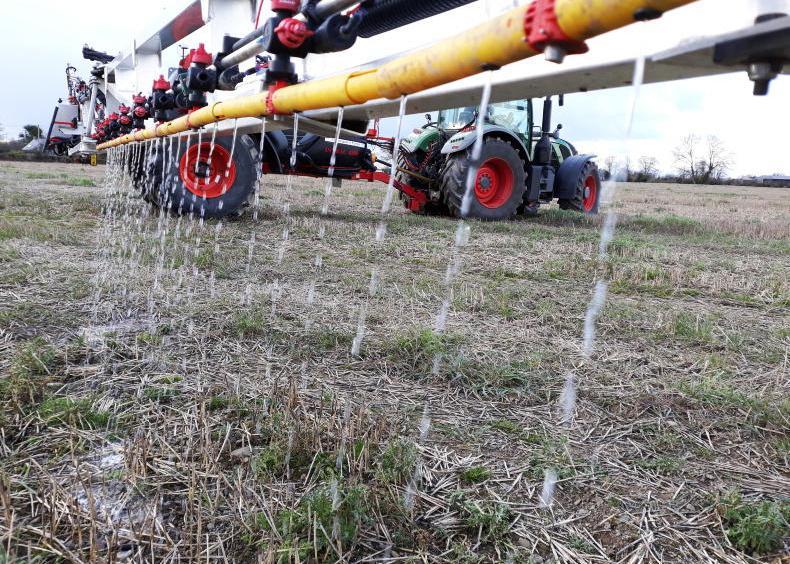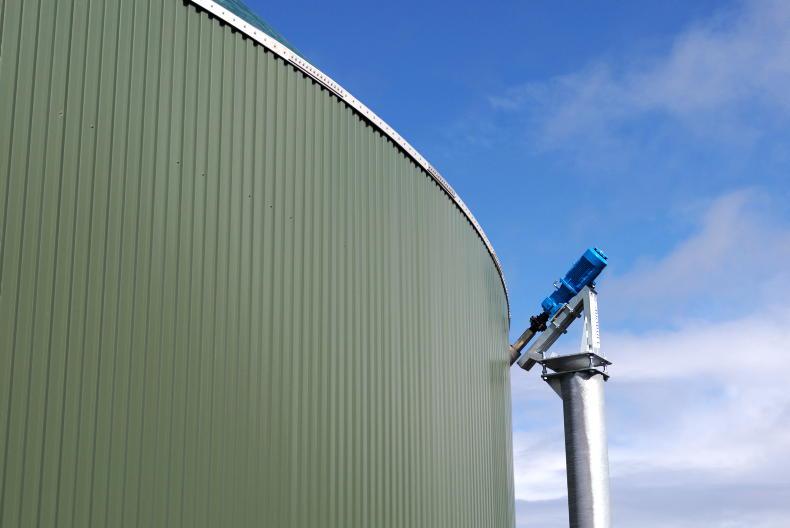This Saturday evening, representatives from 196 nations approved the Paris Agreement on climate change resulting from two weeks of negotiations.
Beyond the political significance of achieving worldwide consensus on the need to tackle climate change, the proposed text contains several points that will have a direct impact on Ireland and its agriculture.
A commitment to step up existing efforts significantly
The text sets a long-term objective of “holding the increase in the global average temperature to well below 2°C above pre-industrial levels and to pursue efforts to limit the temperature increase to 1.5°C above pre-industrial levels”.
Yet it expresses “concern” that existing commitments are not sufficient to achieve this, and states that “much greater emission reduction efforts will be required”.
Ireland is already struggling to achieve cuts in greenhouse gas emissions due by 2020. Yet these will be increased under the commitments the EU brought to Paris for 2030. Efforts for the next 15 years are to be shared next year between countries and sectors within Europe. The Paris Agreement now states that this will again not be enough, and plans for improvements must now be presented every five years.
Ireland can expect to be assigned increasingly strict targets to cut its emissions, one third of which come from agriculture.
Increased scrutiny
Details on how countries should present their plans and report on progress in the future have been kicked down the road, with an expert group formed to establish a set of rules. In many ways, the agreement is a list of the work remaining to be done – with deadlines and responsibilities.
What we know so far is that “all categories of anthropogenic emissions or removals”, i.e. all human activities releasing greenhouse gases or taking them out of the atmosphere, must be accounted for. Agriculture will not be exempt, but at least all countries will report it in the same way and fair comparisons will become possible.
There will be no punishment at the global level if a country does not meet its commitments – yet a “transparency mechanism” will make such failings public and put pressure on governments.
At EU level, however, financial penalties will strike those member states that miss their targets, and Ireland is facing billions of euros in fines if it fails to reach them.
Food security and forests included
The text recognises “the fundamental priority of safeguarding food security and ending hunger, and the particular vulnerabilities of food production systems to the adverse impacts of climate change”. It also states that climate action must be conducted “in a manner that does not threaten food production”
This will support Irish claims that plans to increase farming output at home should go ahead – otherwise production would move to less carbon-efficient countries. Environmentalists disagree, arguing that Ireland produces premium food products rather than those essential to food security.
The Paris Agreement also states that “parties should take action to conserve and enhance, as appropriate, sinks and reservoirs of greenhouse gases as referred to in Article 4, paragraph 1(d), of the Convention, including forests”. The surprise, last-minute addition of forests here is a welcome move for Ireland. If their role was recognised in offsetting emissions, we would be on track to meet our 2020 obligations. The government plans to boost already large investment in tree planting in the coming years to that effect.
This will support Ireland’s efforts to have the role of forests in taking carbon out of the atmosphere recognised at EU level, especially to compensate emissions from farming. Again, many environmentalists oppose this option, saying that every sector should play its part regardless of offsets elsewhere.
More spending
The Paris Agreement extends the existing commitment to raise $100bn each year by 2020 to help developing countries tackle climate change, with a view to increase the amount after 2025.
The level of Ireland’s contribution to international climate funds was criticised in Paris. With Irish economic growth rates now among the fastest in the world, the argument of the recent recession will no longer be valid against the statement that “developed country Parties should continue to take the lead in mobilizing climate finance”.
The prospect of EU fines if Ireland misses its emissions targets, as well as the cost of efforts to make the domestic economy and agriculture more climate-friendly, are likely to add to exchequer spending. The OECD identified climate action as one of the main challenges in its latest economic outlook for Ireland.
Read more
Full coverage: agriculture and climate change
This Saturday evening, representatives from 196 nations approved the Paris Agreement on climate change resulting from two weeks of negotiations.
Beyond the political significance of achieving worldwide consensus on the need to tackle climate change, the proposed text contains several points that will have a direct impact on Ireland and its agriculture.
A commitment to step up existing efforts significantly
The text sets a long-term objective of “holding the increase in the global average temperature to well below 2°C above pre-industrial levels and to pursue efforts to limit the temperature increase to 1.5°C above pre-industrial levels”.
Yet it expresses “concern” that existing commitments are not sufficient to achieve this, and states that “much greater emission reduction efforts will be required”.
Ireland is already struggling to achieve cuts in greenhouse gas emissions due by 2020. Yet these will be increased under the commitments the EU brought to Paris for 2030. Efforts for the next 15 years are to be shared next year between countries and sectors within Europe. The Paris Agreement now states that this will again not be enough, and plans for improvements must now be presented every five years.
Ireland can expect to be assigned increasingly strict targets to cut its emissions, one third of which come from agriculture.
Increased scrutiny
Details on how countries should present their plans and report on progress in the future have been kicked down the road, with an expert group formed to establish a set of rules. In many ways, the agreement is a list of the work remaining to be done – with deadlines and responsibilities.
What we know so far is that “all categories of anthropogenic emissions or removals”, i.e. all human activities releasing greenhouse gases or taking them out of the atmosphere, must be accounted for. Agriculture will not be exempt, but at least all countries will report it in the same way and fair comparisons will become possible.
There will be no punishment at the global level if a country does not meet its commitments – yet a “transparency mechanism” will make such failings public and put pressure on governments.
At EU level, however, financial penalties will strike those member states that miss their targets, and Ireland is facing billions of euros in fines if it fails to reach them.
Food security and forests included
The text recognises “the fundamental priority of safeguarding food security and ending hunger, and the particular vulnerabilities of food production systems to the adverse impacts of climate change”. It also states that climate action must be conducted “in a manner that does not threaten food production”
This will support Irish claims that plans to increase farming output at home should go ahead – otherwise production would move to less carbon-efficient countries. Environmentalists disagree, arguing that Ireland produces premium food products rather than those essential to food security.
The Paris Agreement also states that “parties should take action to conserve and enhance, as appropriate, sinks and reservoirs of greenhouse gases as referred to in Article 4, paragraph 1(d), of the Convention, including forests”. The surprise, last-minute addition of forests here is a welcome move for Ireland. If their role was recognised in offsetting emissions, we would be on track to meet our 2020 obligations. The government plans to boost already large investment in tree planting in the coming years to that effect.
This will support Ireland’s efforts to have the role of forests in taking carbon out of the atmosphere recognised at EU level, especially to compensate emissions from farming. Again, many environmentalists oppose this option, saying that every sector should play its part regardless of offsets elsewhere.
More spending
The Paris Agreement extends the existing commitment to raise $100bn each year by 2020 to help developing countries tackle climate change, with a view to increase the amount after 2025.
The level of Ireland’s contribution to international climate funds was criticised in Paris. With Irish economic growth rates now among the fastest in the world, the argument of the recent recession will no longer be valid against the statement that “developed country Parties should continue to take the lead in mobilizing climate finance”.
The prospect of EU fines if Ireland misses its emissions targets, as well as the cost of efforts to make the domestic economy and agriculture more climate-friendly, are likely to add to exchequer spending. The OECD identified climate action as one of the main challenges in its latest economic outlook for Ireland.
Read more
Full coverage: agriculture and climate change









SHARING OPTIONS